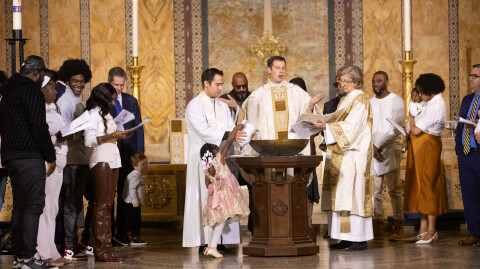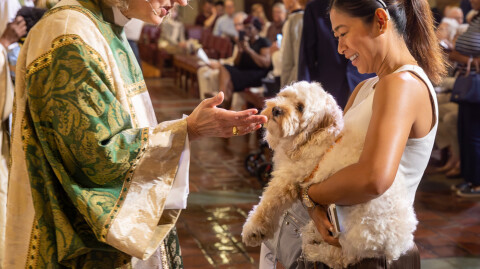Last Sunday at the 11 am service, we joined together in the old Protestant paean "In the Cross of Christ I Glory." As I lent my own voice to the throng, I was struck once again by just how positively the cross is characterized in a great portion of Christian devotional music. "Lo, it glows with peace and joy," we sang. "Peace is there that knows no measure, joys that through all time abide."
What exactly is peaceful or joyful about the cross? The Romans intended the cross to be the precise opposite of peace and joy; they hoped it would create fear among its subjects and cause them tremendous pain. The point of the cross was not only to exterminate the enemies of the empire but also to serve as a deterrent to others. The cross was supposed to be so horrific a punishment that those who saw others die on the cross would not dare in the future to stand in Rome's way.
Yet thinkers throughout the centuries have seen the cross as a paradox. It is indeed gruesome and death-dealing, but at the same time it also serves as a poignant sign of God's love for us and as the gateway to eternal life. The New Testament itself asserts that Christ makes peace through the blood of the cross. The Apostle Paul calls the message of the cross "the power of God." In the stunning anthem St. Bartholomew's Choir sang last Sunday, the cross is hailed as the "one and only noble tree"; the wood and iron of the cross are labeled as the "sweetest" wood and iron of all the world.
Here's how the cross is described in another hymn in our hymnal:
The cross he bore is life and health,
though shame and death to him:
his people's hope, his people's wealth,
their everlasting theme.
And in yet another:
The balm of life, the cure of woe,
the measure and the pledge of love,
the sinner's refuge here below,
the angels' theme in heaven above.
Every now and then, someone complains about the trivialization or sanitization of the cross. We have made the cross so pretty and so commonplace, they say, that we minimize the true pain that Jesus experienced and the actual horror that Jesus faced. I understand the argument, but there's a reason, I think, that a mystical devotion to the Cross has persisted for centuries, that countless writers of song have seen in the Cross both peace and joy, and that so many of us wear crosses around our necks to this day.
The cross to which Jesus marches this upcoming week is a great comfort to those of us who believe in him. It shows us just how far God is willing to go for us. It reminds us that God remains with us even amid the stench of death. And it assures us that, however bad things seem now, new life is on the horizon and greater things are ahead.



